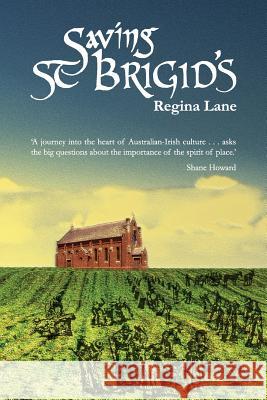Saving St Brigid's » książka
Saving St Brigid's
ISBN-13: 9780992343347 / Angielski / Miękka / 2016 / 304 str.
At the top of a hill in south-west Victoria, surrounded by rolling green hills that fall
away to the Southern Ocean, sits a grand old red-brick church. For more than 150
years, these fertile volcanic fields have sustained the largest rural population of Irish
descent in Australia. Built and paid for by the children of potato-famine survivors,
St Brigid's is a symbol of faith and hope in an ancient land, by a cold, wild sea.
In 2009, the Catholic Church put the church and hall up for sale, against the wishes
of the local community. What began as a small local issue soon became a national
news story, in a battle that went all the way to Rome.
Saving St Brigid's is the truly unique story of a small Australian rural community who,
in the spirit of their Irish rebel ancestors, stood up for what they believed in. Their
fight for justice awakened the author to the richness of her Irish Catholic culture,
and its lasting legacy on the community, and the Church, she grew up in. Through
the lens of her Irish heritage and that of the local Indigenous people, she weaves
together a lyrical narrative of song and story, and discovers just how much our
ancestral traditions have to teach us if we are to transform the world we live in.
At the top of a hill in south-west Victoria, surrounded by rolling green hills that fall
away to the Southern Ocean, sits a grand old red-brick church. For more than 150
years, these fertile volcanic fields have sustained the largest rural population of Irish
descent in Australia. Built and paid for by the children of potato-famine survivors,
St Brigid’s is a symbol of faith and hope in an ancient land, by a cold, wild sea.
In 2009, the Catholic Church put the church and hall up for sale, against the wishes
of the local community. What began as a small local issue soon became a national
news story, in a battle that went all the way to Rome.
Saving St Brigid’s is the truly unique story of a small Australian rural community who,
in the spirit of their Irish rebel ancestors, stood up for what they believed in. Their
fight for justice awakened the author to the richness of her Irish Catholic culture,
and its lasting legacy on the community, and the Church, she grew up in. Through
the lens of her Irish heritage and that of the local Indigenous people, she weaves
together a lyrical narrative of song and story, and discovers just how much our
ancestral traditions have to teach us if we are to transform the world we live in.











